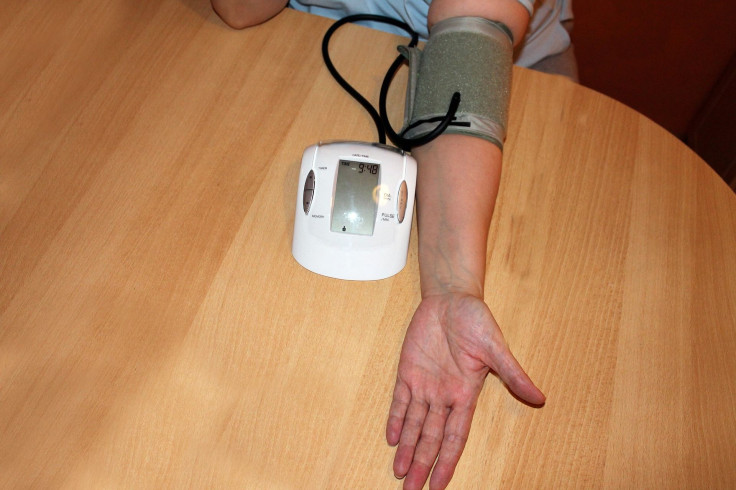Stress During Early Adulthood Can Lead To High Blood Pressure Later: Get Your Stress Under Control

Even if you’re young and fit, you may still be putting yourself at risk for high blood pressure later on if you get stressed out easily, a new study published in the journal Heart finds. The study, conducted by researchers at Stanford University Department of Medicine, examined 1.5 million 18-year-old men who were drafted into the Swedish army between 1969 and 1997 and tracked them until 2012.
At 18 years old, all military conscripts had to undergo a two-day medical, part of which included a psychological assessment. This part involved a 20- to 30-minute interview that measured stress resilience, defined by a scale of 1 to 9, with 9 meaning high resilience. Though nearly all of the conscripts had healthy blood pressure at the beginning, some 93,000 were diagnosed with high blood pressure by 2012 — when they were around 47 years old.
It turned out that those who had a low stress resilience score at 18 were more likely to be diagnosed with hypertension later on. The researchers also found that men who had a higher body mass index (BMI) at 18 were three times as likely to develop high blood pressure as older adults.
“These findings suggest that low stress resilience may contribute to etiological pathways for hypertension and accounts for more cases among those with high BMI,” the researchers write. “If confirmed, this knowledge may help inform better preventing interventions by addressing psychosocial risk factors and stress management across the lifespan.”
When we get stressed out, the fight-or-flight response kicks in, revving up adrenaline and blood pressure temporarily. But chronic stress means that your body is almost constantly in a state of fight-or-flight, and this can cause hormones to get out of whack and inflammation to flare in various parts of your body. As a result, chronic stress can negatively impact every part of your body, including your heart, lungs, liver, sex drive, muscles, and stomach. It can also harm your brain and mental health, from impairing memory and concentration, to shrinking brain tissue.
Building stress resilience, then, may protect you from these chronic health effects as well as high blood pressure — and its complications, like an increased risk of heart attack and stroke. We all experience stress in some way or another, but taking the time to build resilience every day will combat the health-deteriorating effects of stress for the long-term.
Stress resilience could include eliminating toxic things or people from your life, or learning how to better cope with them. Forcing yourself to exercise even if you don’t want to, and sticking to an exercise schedule, has also been shown to reduce stress and build resilience.
According to the American Psychological Association, other good ways to build resilience include maintaining connections and relationships, changing your perspective on life problems, accepting change, and taking care of yourself. For chronic stress or anxiety that may not have anything to do with major life events, however, taking the time to carve out “me time” and time for relaxation in your schedule will make a large difference in keeping you sane. That might involve taking a long bath every few days or once a week, spending one night resting, doing yoga, or meditating, all of which have been shown to be helpful in stress relief.
Source: Crump C, Sundquist J, Winkleby M, Sundquist K. Low stress resilience in late adolescence and risk of hypertension in adulthood. Heart, 2016.
Published by Medicaldaily.com



























